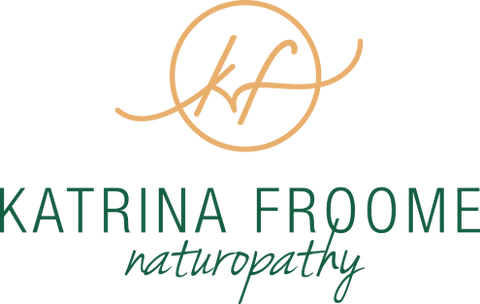What are FODMAPs and can following a low FODMAP diet help reduce IBS and/or SIBO symptoms?
April was Irritable Bowel Syndrome (IBS) Awareness Month and May is Inflammatory Bowel Disease (IBD) Awareness Month. I thought that I would discuss the low FODMAP diet as this was designed for people who suffer from IBS and can give relief to those who suffer from IBD.
There are so many diets on the market that are designed to work around healing your gut and a lot can cause more distress on an already sensitive digestive system if followed for too long (more than six months) or if the diet isn't right for you.
A popular diet that I have recommended in clinic for my IBS clients is the low FODMAP diet. FODMAP stands for fermentable oligosaccharides, disaccharides, monosaccharides and polyols, which are short-chain carbohydrates (sugars) that the small intestine absorbs poorly.
This diet has been designed to help people with IBS and/or small intestinal bacterial overgrowth (SIBO) figure out which foods are problematic and which foods reduce their symptoms. This is done by eliminating the foods that are known to cause digestive problems and also assist in reducing inflammation.
I’m curious to know ‘Have you tried the Low FODMAP Diet to help relieve your digestive issues?’
Did you know that 86% of people who have IBS and/or SIBO feel better when following this diet. If you have IBS and/or SIBO you will be aware that you experience digestive distress after eating high FODMAP foods.
These symptoms include:
- Abdominal (Tummy) pain and cramping
- Bloating, especially after you have just eaten these foods
- Diarrhea
- Constipation
- Gas and flatulence
Foods that are high in FODMAPs
- Wheat-based products such as cereal, bread and crackers
- Dairy-based milk, yogurt and ice cream
- Beans, chickpeas and lentils
- Some vegetables, such as onions, garlic, artichokes, asparagus, sweet potato, corn, mushrooms
- Some fruits, such as watermelon, apples, cherries, pears, mangoes, nectarines and peaches
Foods that are low in FODMAPs
- Eggs and meat
- Grains like rice, quinoa and oats
- Certain cheeses such as brie, Camembert, cheddar and feta
- Almond milk, Coconut milk and yoghurt
- Vegetables like bok choy, rocket, lettuce, eggplant, potatoes, tomatoes, cucumbers and zucchini
- Fruits such as grapes, oranges, strawberries, blueberries and pineapple
Please note that the foods mentioned are an example and there are many more in both categories.
The low FODMAP diet has been designed to work in three phases. Low FODMAP is a three-step elimination diet:
Phase 1 - you stop eating certain foods (high FODMAP foods).
Phase 2 - you slowly reintroduce them to see which ones are troublesome.
Phase 3 - once you identify the foods that cause symptoms, you can avoid or limit them whilst enjoying everything else worry-free.
For my clients who have tested positive to SIBO, I use the SIBO Biphasic Diet Protocol which was designed by Dr Nirala Jacobi and is based on both Low FODMAPS and Short Chained Carbohydrate Diet which was designed by Dr Alison Siebecker. The SIBO Biphasic Diet has been updated and there are many more foods that are allowed and I feel is so much easier to follow. The Biphasic Diet is based on two phases –
Phase 1 (Reduce and Repair) – restricted and semi-restricted
Phase 2 – Remove and Restore – more foods are added in especially certain types of dairy and grains
I then recommend doing the Hair Bio-Compatibility Food and Product Testing as it allows more foods into your diet that are specific to what your body needs after treatment.
Please remember that following such a restrictive diet can cause more harm than good. It's important to eventually follow a whole food diet as this does not restrict any of the food groups.
Any dietary changes can be challenging especially if you are trying to do this yourself and if you are not working with an experienced practitioner. Following a Low FODMAP Diet should only be done for a short period of time as it is very restrictive and can lead to more digestive discomfort and food intolerances.
With my IBS, SIBO and IBD clients I do weekly menu plans along with providing extra recipes that are specific to their needs. I do work with clients who are vegetarian, vegan and meat eaters to nutritiously heal their digestive systems. These plans are included in your treatment plans.
Reach out if you are ready to work with me to find out whether you have SIBO or IBS as treatment is different and we need to find out which treatments work best for you.
Yours in health and wellness,
Katrina xx

